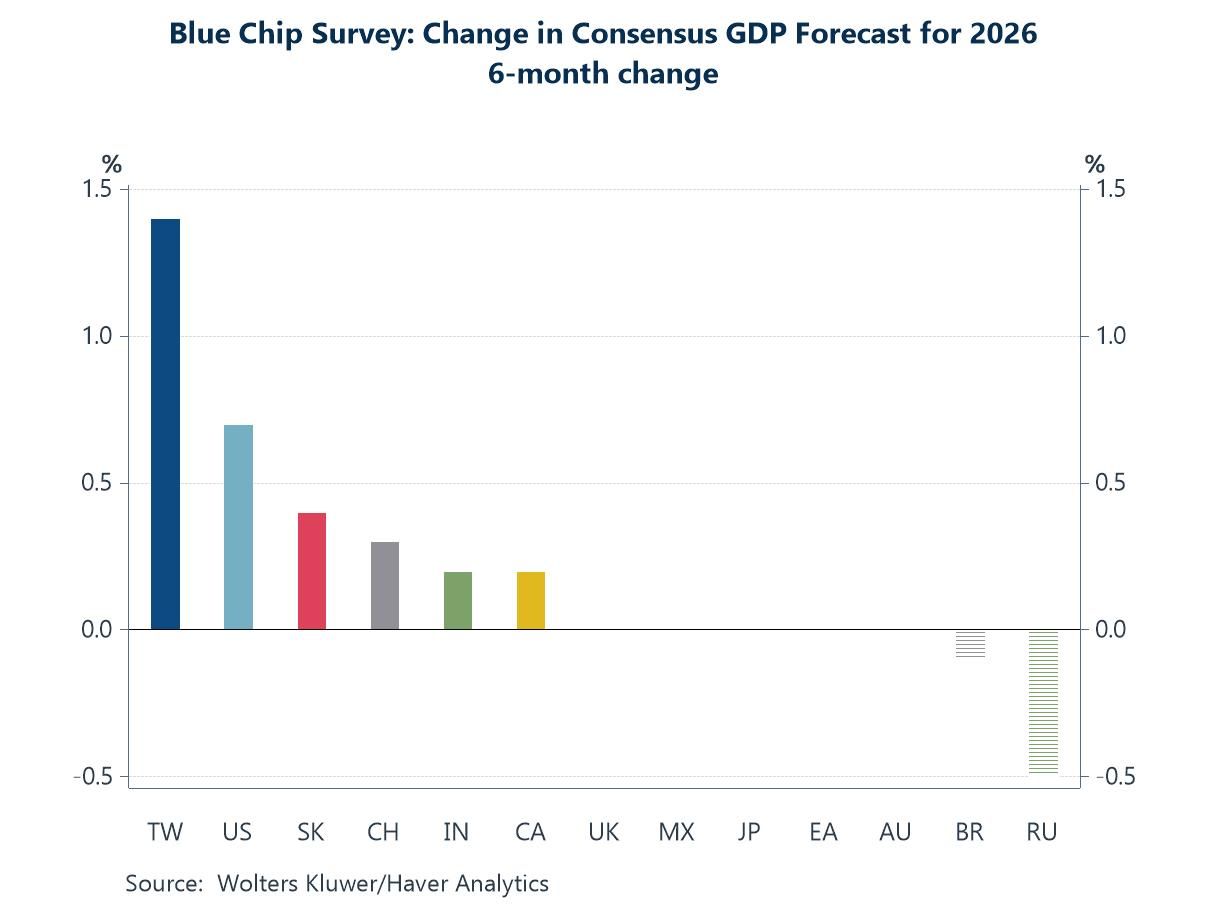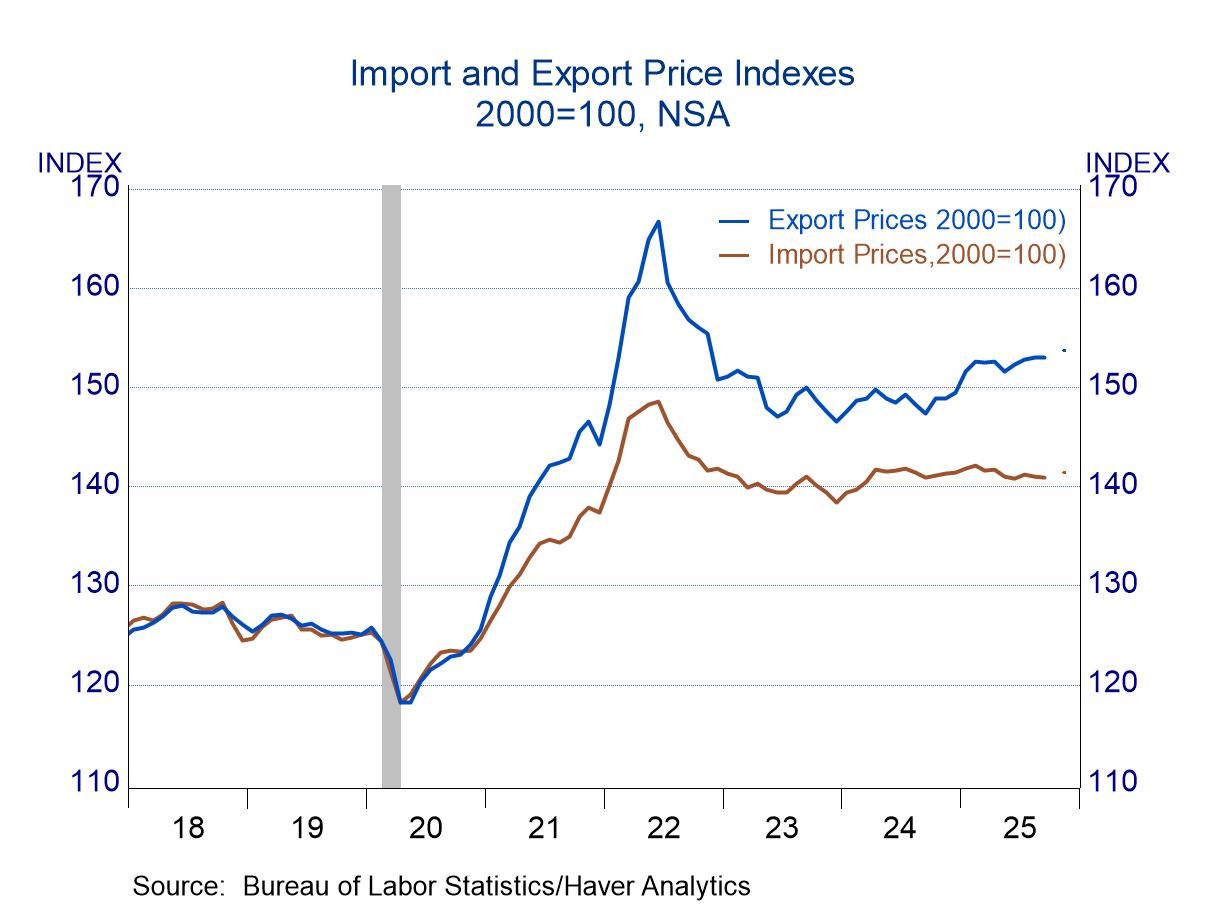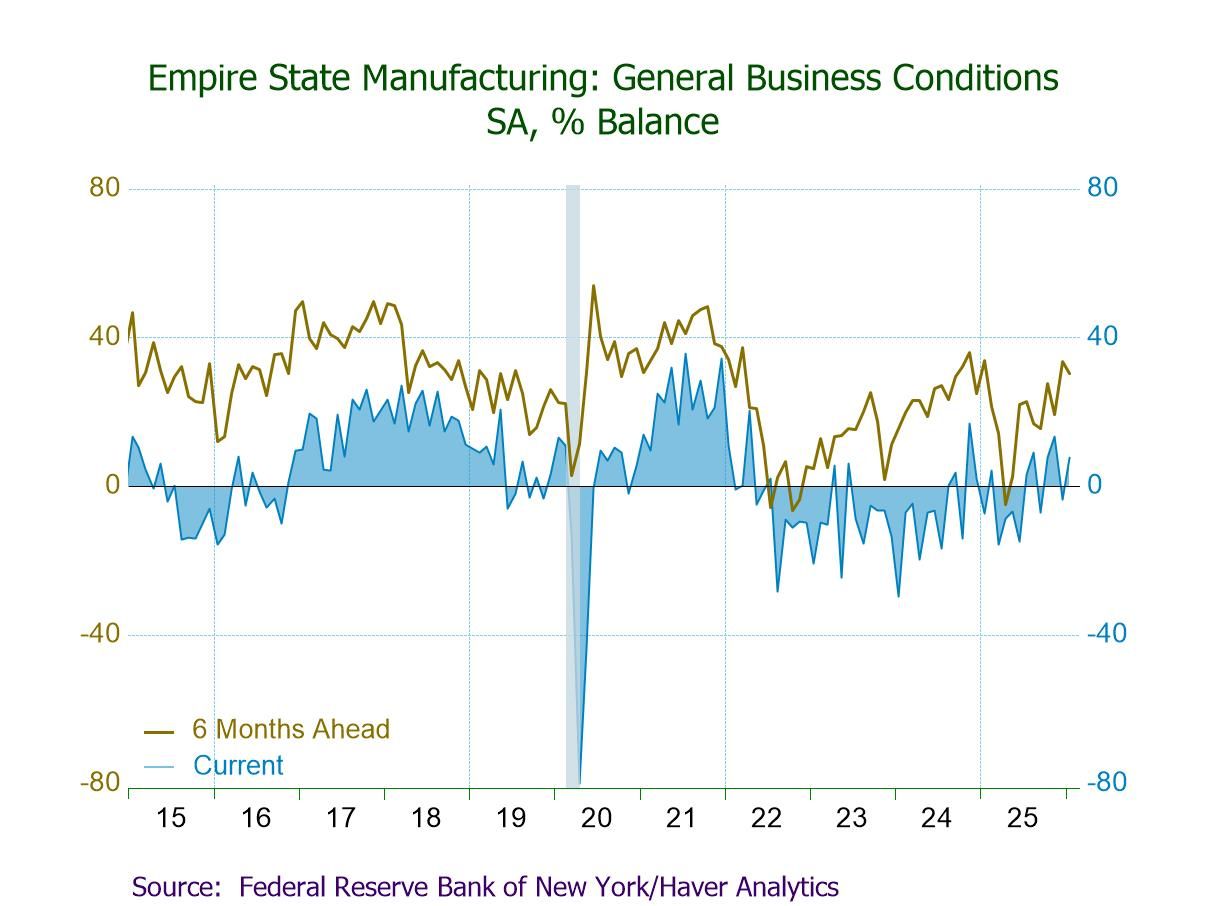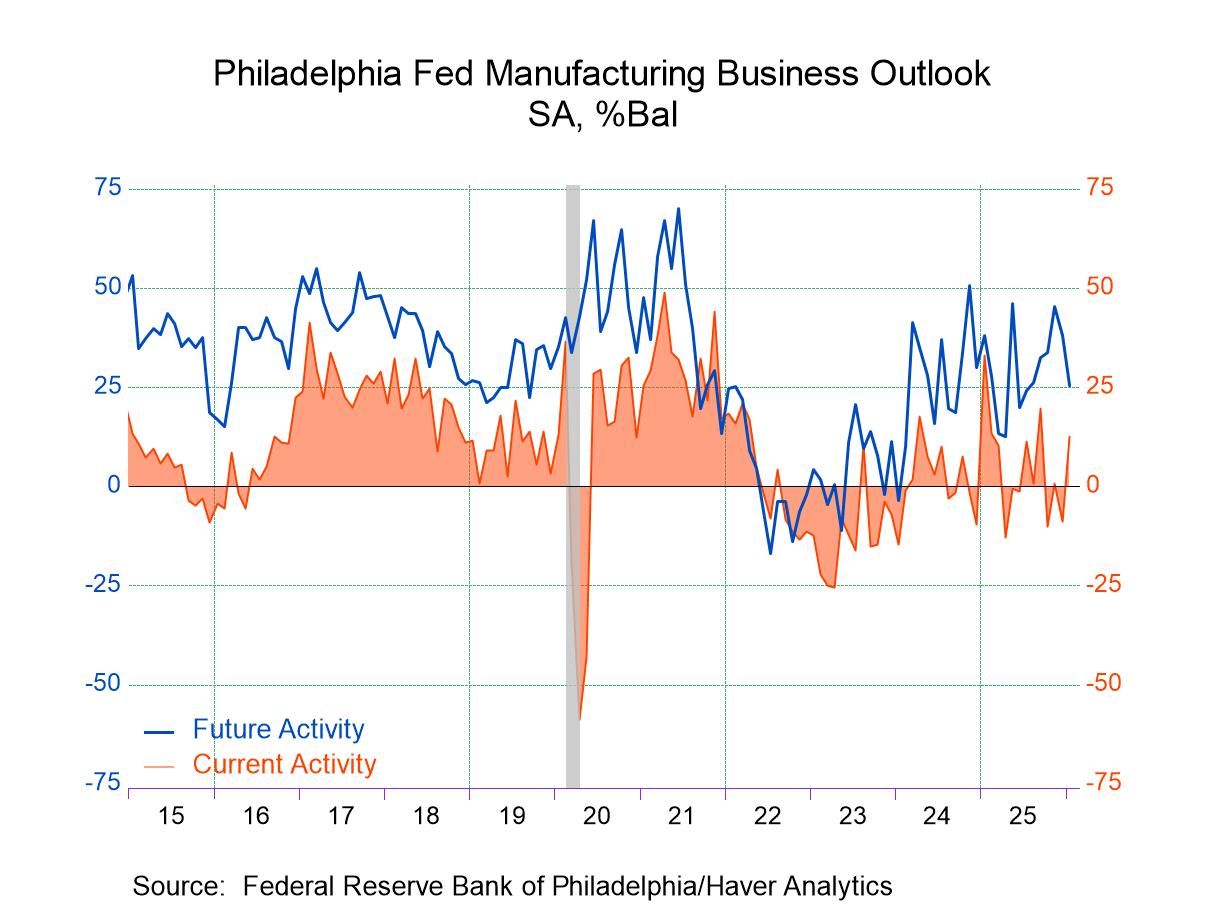 Global| Apr 09 2009
Global| Apr 09 2009U.S. Trade Deficit Falls Further To Lowest Since 1999
by:Tom Moeller
|in:Economy in Brief
Summary
Amidst the worldwide economic recession, the U.S. foreign trade deficit fell further during February to the lowest level since November of 1999. The deficit of $26.0B narrowed from the little revised January level of $36.2B. Imports [...]
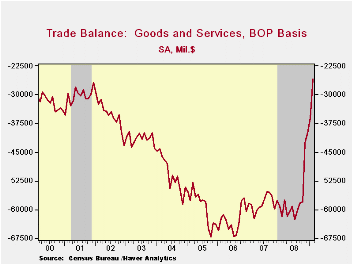 Amidst
the worldwide economic recession, the U.S. foreign trade deficit fell
further during February to the lowest level since November of 1999. The
deficit of $26.0B narrowed from the little revised January level of
$36.2B. Imports continued to show the effects of the recession and
lower oil prices by posting a 5.1% decline which pulled them down by
28.8% year-to-year. Exports went the other way in February as they rose
for the first time since July. Consensus expectations had been for a
January deficit of $36.6B.
Amidst
the worldwide economic recession, the U.S. foreign trade deficit fell
further during February to the lowest level since November of 1999. The
deficit of $26.0B narrowed from the little revised January level of
$36.2B. Imports continued to show the effects of the recession and
lower oil prices by posting a 5.1% decline which pulled them down by
28.8% year-to-year. Exports went the other way in February as they rose
for the first time since July. Consensus expectations had been for a
January deficit of $36.6B.
Adjusted for price inflation, the trade deficit in goods narrowed as well. The real trade deficit of $35.6B was its lowest since the 2001 recession and down from $51.3B last February.
The U.S. trade deficit in goods with China narrowed to its lowest level ($14.2B) since early 2006 as imports fell 21.8% y/y while U.S. exports fell 19.0%. The trade deficit with Japan also narrowed sharply to $2.2B, its shallowest since 1984. The U.S. recession dropped imports by roughly one-half from one year ago while exports fell 25.7%.
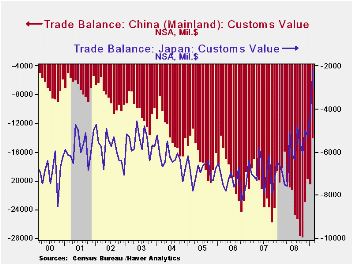
Measured in chained-2000 dollars nonoil imports fell another 5.3% with the recession (-22.2% y/y). Overall real non-auto consumer goods imports fell 16.8% y/y to their lowest level since early 2005. Imports of automotive vehicles & parts were down 54.1% y/y while non-auto capital goods imports fell 22.7% y/y, also to their lowest since 2005.· Services imports fell another 1.9%, about as they did in January (-6.6% y/y), and they were down for the sixth consecutive month. The decline reflected yet another decline in travel imports (-8.2% y/y) while passenger fares were off by 10.4% versus February of 2008.
Despite the recessions abroad, real exports
of goods posted a 3.1% increase during February. However, that
nevertheless left them down 17.4% y/y at near the lowest level since
early-2006. 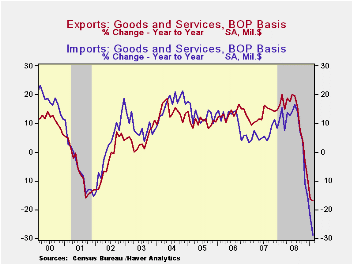 The chained dollar value of non-auto consumer goods exports
led the overall gain with an 11.2% increase (-6.8% y/y) while capital
goods exports ticked up 0.4% (-16.6% y/y). Real exports of automobiles
& parts increased 8.8% but they remained off by nearly one-half
during the last year.
The chained dollar value of non-auto consumer goods exports
led the overall gain with an 11.2% increase (-6.8% y/y) while capital
goods exports ticked up 0.4% (-16.6% y/y). Real exports of automobiles
& parts increased 8.8% but they remained off by nearly one-half
during the last year.
Nominal exports of services fell 1.0% (-5.5% y/y), their fifth decline in the last six months. Travel exports were down 13.5% y/y as fewer foreign citizens came to the U.S. while passenger fares fell 11.5%.
The international trade data can be found in Haver's USECON database. Detailed figures are available in the USINT database.
The Minutes of the latest Federal Open Market Committee can be found here.
| Foreign Trade | February | January | Y/Y | 2008 | 2007 | 2006 |
|---|---|---|---|---|---|---|
| U.S. Trade Deficit | $26.0B | $36.2B | $61.9B (02/08) | $681.1 | $700.3 | $753.3 |
| Exports - Goods & Services | 1.6% | -5.9% | -16.9% | 11.5% | 13.0% | 13.5% |
| Imports - Goods & Services | -5.1% | -6.7% | -28.8% | 7.3 | 6.1% | 10.8% |
| Petroleum | -8.2% | -18.1% | -56.0% | 37.0 | 9.4% | 20.1% |
| Nonpetroleum Goods | -5.5% | -5.8% | -26.0% | 1.3% | 4.8% | 9.1% |
Tom Moeller
AuthorMore in Author Profile »Prior to joining Haver Analytics in 2000, Mr. Moeller worked as the Economist at Chancellor Capital Management from 1985 to 1999. There, he developed comprehensive economic forecasts and interpreted economic data for equity and fixed income portfolio managers. Also at Chancellor, Mr. Moeller worked as an equity analyst and was responsible for researching and rating companies in the economically sensitive automobile and housing industries for investment in Chancellor’s equity portfolio. Prior to joining Chancellor, Mr. Moeller was an Economist at Citibank from 1979 to 1984. He also analyzed pricing behavior in the metals industry for the Council on Wage and Price Stability in Washington, D.C. In 1999, Mr. Moeller received the award for most accurate forecast from the Forecasters' Club of New York. From 1990 to 1992 he was President of the New York Association for Business Economists. Mr. Moeller earned an M.B.A. in Finance from Fordham University, where he graduated in 1987. He holds a Bachelor of Arts in Economics from George Washington University.



